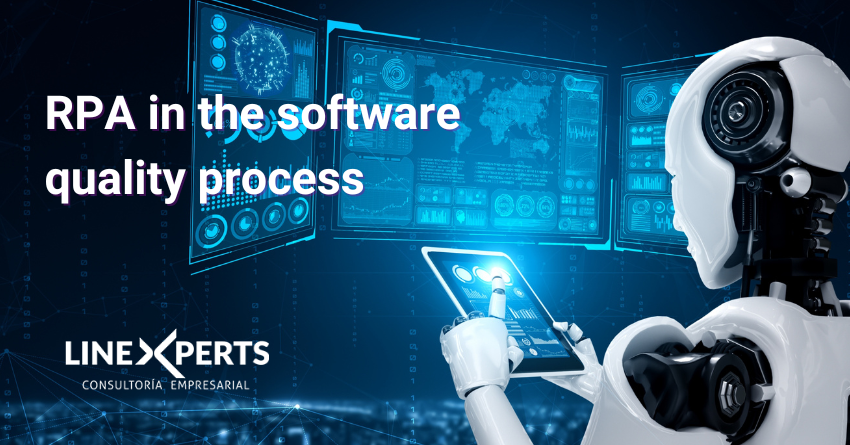RPA in the software quality process
A few decades ago, when talking about robots, automation and artificial intelligence, it seemed that it was only in the context of science fiction and entertainment such as movies, books and comics, but over time that imaginary has changed, seeing robots that learn from the processes of human beings to subsequently make them more efficient is no longer a product of the imagination of some visionary comic book writer, today on the contrary it is already a reality.
According to the first statement, tell you that in this new reality there is not only such a thing as "bots", which are robots made with software, and that aim to automate repetitive processes, but additionally these bots, based on the parameters that we give them can learn and improve certain processes. You are probably thinking that the implementation of bots and artificial intelligence within your company would be a luxury, which would be extremely expensive, and that perhaps it would not be as efficient as traditional methodologies. Let us convince you otherwise.
Today we want to talk to you about RPA (Robotic Process Automation), a methodology that has everything to do with what we have been talking about bots, efficiency and automation. And all this linked to software quality verification processes, a fundamental section in software development.
What differentiates RPA from other automation methodologies?
Although process automation is not something new in the logistics and business world, the technology industry through software has generated a great revolution in this area, and that is why when we look for solutions of this type, we can see that we have a wide range of options, which may or may not serve our needs.

In the area of software development, specifically in web development, for example, we have APIs, an automation tool that has become the standard in web applications. Broadly speaking, an API is a piece of code, which has a very specific task, and generally serves as a bridge to connect between two or more web applications. The API saves us time and work, since it automatically consults certain data, collects information, publishes information, keeps track of the parameters we want to monitor, etc. In addition, many of the largest and most popular platforms on the Internet have their own APIs in order that users can use them.
If, for instance, we want to create a bot that publishes a message on Twitter every time it rains in our city, we will surely have to use the APIs of the Twitter platform that will give us access to automate the publication of messages, and of the Meteorological Service of our country, so that we automatically receive the information about when it is raining.
What is the drawback with APIs? The biggest drawback is that to make this automation must be thought and incorporated from the beginning in the code, since the API connects directly with the software, if a program is not designed to use APIs, then it will be very complicated and costly to modify it.
We wanted to tell you all this so that you can better understand how the RPA works, since it does not connect directly with the software, allowing us that after a program or platform is conceived, we can still generate automation processes. In other words, if to make a publication on Twitter with APIs a code will do everything, without even needing to open the browser, on the contrary, the RPA will interact with the Twitter interface, write the message that we have previously established and publish it.

How to perform software quality processes with RPA?
Knowing now the benefits that RPA offers us, we want to tell you why it is a good idea to apply it within the software quality processes.
Firstly, we would like to tell you that software verification processes are a fundamental task in software development, unfortunately many times they are not given the necessary attention. In these processes, what is done through automated tests and tests is to certify that an application is working according to customer requirements. These tests should not only be done at the end, but as the development stages progress, they should be evaluated.
How can we carry out these quality processes in an efficient and automated way with RPA? As we explained with the APIs you can perform tests that interact directly with the program code, however, the RPA presents us with an advantage and that is that it will interact directly with the user interface, in this way we will not only evaluate the operation of the program internally, but we can also be on the user side, verifying that its interface has no faults, and that each of the modules and screens work correctly.
For this we have the agile test factory, where we improve, we measure the temperature of the project, we prevent, we provide information for decision-making, additionally the goal is to generate a series of processes that comprehensively evaluate the efficiency and performance of your software. Consider this a great option if you want to improve quality control within your company, either because you are dedicated to software development or because you want to know if the tools you use are doing their job efficiently.





